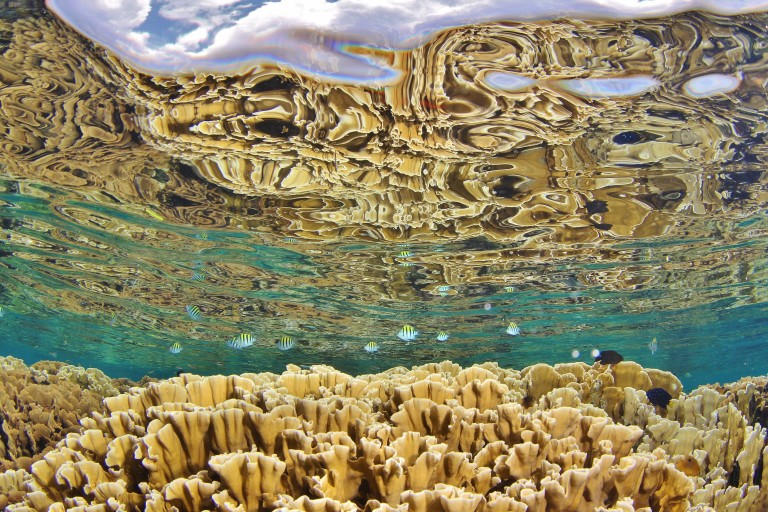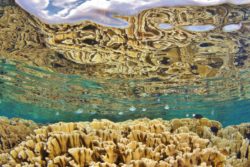 The facts are clear: our world is getting warmer, and the warming is happening rapidly. For plants, animals and other organisms, shifts in climate have enormous consequences. Nowhere is this more true than on coral reefs, where a worldwide crisis is underway that has scientists and environmentalists asking a chilling question: how can we save coral reefs?
The facts are clear: our world is getting warmer, and the warming is happening rapidly. For plants, animals and other organisms, shifts in climate have enormous consequences. Nowhere is this more true than on coral reefs, where a worldwide crisis is underway that has scientists and environmentalists asking a chilling question: how can we save coral reefs?
At the Coral Reef Alliance, we believe that the natural process of adaptation can help save coral reefs. A new article in Trends in Ecology and Evolution, co-authored by CORAL staff and others, argues that adaptation will occur faster and have a better chance of succeeding if nature has many options with which to work. Options take the form of different species, individuals and genes and work like tickets in a lottery: most are not winners, but a few have just the right combinations to succeed.
This article outlines an innovative approach and practical advice about how we can facilitate the processes of adaptation through the creation of adaptation networks, which maximize the probability of nature finding the winners. Adaptation networks have three attributes. They are:
- Diverse: Each network contains a variety of species, individuals and genes (many lottery tickets);
- Connected: Corals within the network are connected to one another via the movement of coral larvae (winners can spread across a region); and
- Large: The network covers enough area that different corals throughout the network are not affected by the same conditions (reducing the risk that all lottery tickets are destroyed by a disaster).
Adaptation networks serve as experimental testing grounds where billions of evolutionary match/mismatch tests (lottery draws) allow nature to pick winning combinations of genes and species. As our climate continues to change, these winners are vital to creating the ecosystems of the future in which humans and other species can continue to thrive.
This approach to the creation of adaptation networks is a direct contrast to many contemporary conservation strategies that are based on forecasting which species will succeed under future environmental conditions. However, it is notoriously difficult to predict the effects of climate change on local environments accurately, and even harder to predict which organisms will succeed in these anticipated conditions. In the face of this uncertainty, it is unwise only to protect those species or areas that we think will survive in the oceans of the future. It is for this reason that adaptation networks could prove to be the best method to save coral reefs by protecting diversity and allowing the natural selection process to happen.
